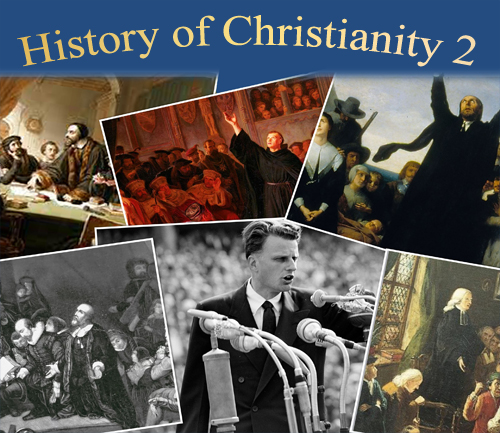Module 15: American Evangelicalism
Hi everyone, and welcome back to the fifteenth module of the History of Christianity 2 course. In this section, we'll look at the continuing church in North America. We'll examine the continuing group of churches known as Evangelicals (as contrasted with Theological Liberalism and Separatist Fundamentalism). This module will define the characteristics of Evangelical churches, examine some typical leaders and para-church organizations, and some challenges, and how the Evangelicals met those challenges.
This module will help you to understand the nature of the churches that were most recently influential on many of the students' current churches and Christian experiences. The student will be exposed to the characteristics of Evangelical churches, as modeled by recent churches and ministries in America. The student will examine the ideals, goals, and methods of a variety of Evangelical ministries, and their short and long-term results.
The student will be able to evaluate this movement and its methods, as well as some challenges and alternatives, which it encountered in this period. This module will also aid the student to work through how the lessons learned are applicable in their own life and ministry.
Introductory Scenario
Imagine that you are a member of a hiring committee, searching for the new leader for your organization. You are interviewing a variety of potential leaders, who each describe their vision and strategy for the organization. How will you decide between the candidates? What strategies and goals will be more or less attractive? What skills and methods will be more or less ideal in the potential leader? How will you evaluate the leaders, methods, and goals? What standards will you use to evaluate? Please consider these questions and be watching for material that will help you answer them as you work through this module.
Module Objectives and Outcomes
Upon successful completion of this module, the student will:
- Understand the social and cultural contexts addressed by the various American evangelical leaders and movements, and the strategies used to address them.
- Describe the main leaders and movements of this period and what made them noteworthy and influential.
- Understand the challenges faced by the Evangelicals of this period and how they responded to these various challenges.
- Evaluate the various approaches from this period, and the principles/lessons that can be learned from them and applied to current ministry.
- Place the major events and people of these movements in a general chronology.
Instruction Guides
In this section, you'll find links to important instructional documents for this module. Click the following links to open each document. There is a set of instructions for individual study and a document for group study.
Lecture Content
In this section, you will find the video lectures for the American Evangelicals module. They are designed to be watched in order, but each video should make sense on its own. Click each banner to open access to each video. There are also links with each video if you prefer to watch on the Rumble or YouTube interface or download just the audio to listen offline.




































